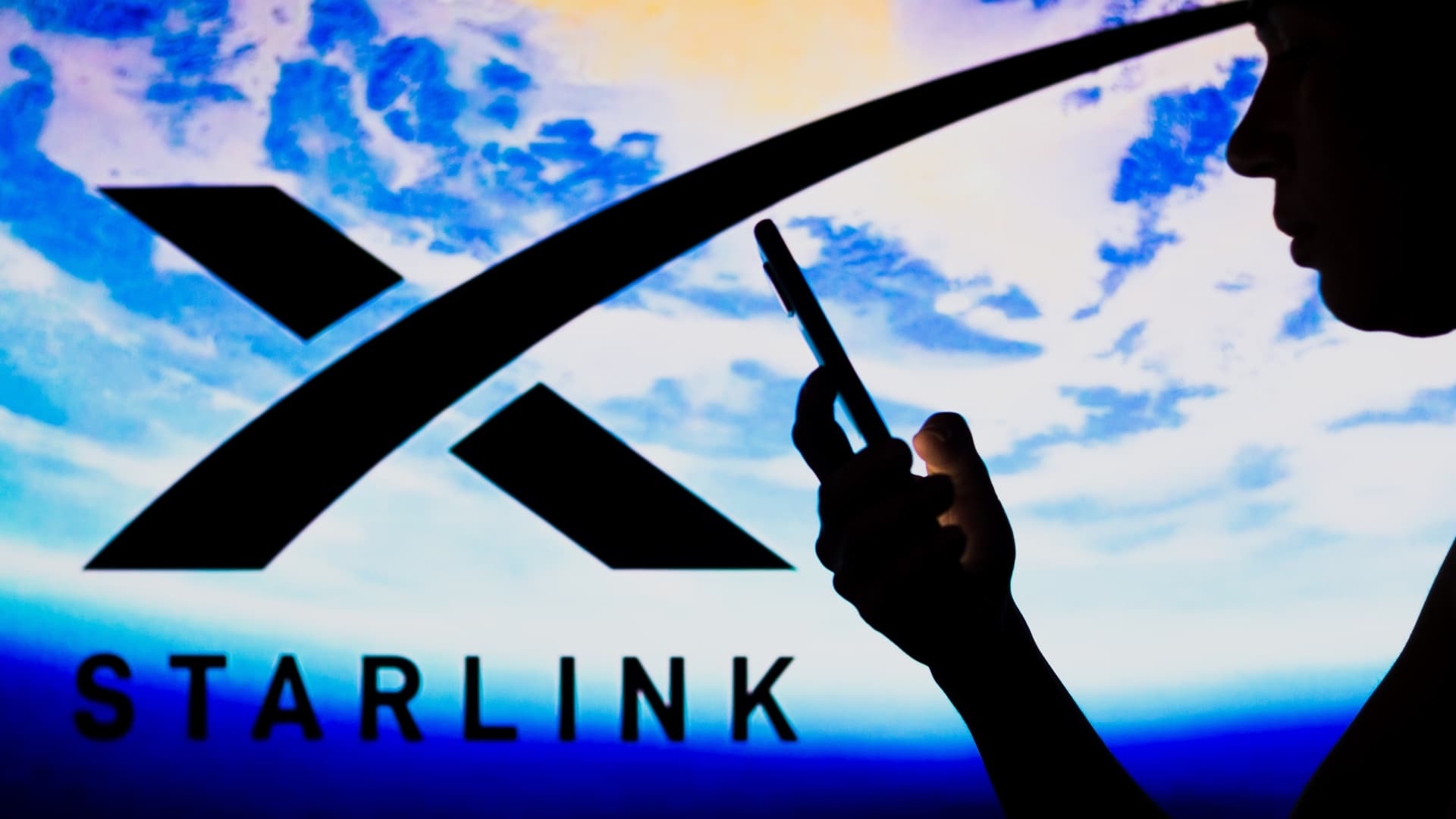
The Starlink logo is seen in the background of a silhouetted woman holding a mobile phone.
Sopa Images | Lightrocket | Getty Images
The Federal Communications Commission authorized SpaceX to provide Starlink satellite internet to vehicles in motion, a key step for Elon Musk’s company to further expand the service.
“Authorizing a new class of [customer] terminals for SpaceX’s satellite system will expand the range of broadband capabilities to meet the growing user demands that now require connectivity while on the move, whether driving an RV across the country, moving a freighter from Europe to a U.S. port, or while on a domestic or international flight,” FCC international bureau chief Tom Sullivan wrote in the authorization posted Thursday.
SpaceX did not immediately respond to CNBC’s request for comment on the FCC decision.
Starlink is SpaceX’s network of satellites in low Earth orbit, designed to deliver high-speed internet anywhere on the globe. SpaceX has launched about 2,700 satellites to support the global network, with the base price of the service costing users $110 a month. As of May, SpaceX told the FCC that Starlink had more than 400,000 subscribers.
SpaceX has signed early deals with commercial air carriers in preparation for this decision: It has pacts with Hawaiian Airlines and semiprivate charter provider JSX to provide Wi-Fi on planes. Up until now SpaceX has been approved to conduct a limited amount of inflight testing, seeing the aviation Wi-Fi market as “ripe for an overhaul.”
The FCC’s authorization also includes connecting to ships and vehicles like semitrucks and RVs, with SpaceX having last year requested to expand from servicing stationary customers. SpaceX had already deployed a version of its service called “Starlink for RVs,” with an additional “portability” fee. But portability is not the same as mobility, which the FCC’s decision now allows.
The FCC imposed conditions on in-motion Starlink service. SpaceX is required to “accept any interference received from both current and future services authorized,” and further investment in Starlink will “assume the risk that operations may be subject to additional conditions or requirements” from the FCC.
The ruling did not resolve a broader SpaceX regulatory dispute with Dish Network and RS Access, an entity backed by billionaire Michael Dell, over the use of 12-gigahertz band — a range of frequency used for broadband communications. The FCC continues to analyze whether the band can support both ground-based and space-based services, with SpaceX pushing for the regulator to make a ruling.







